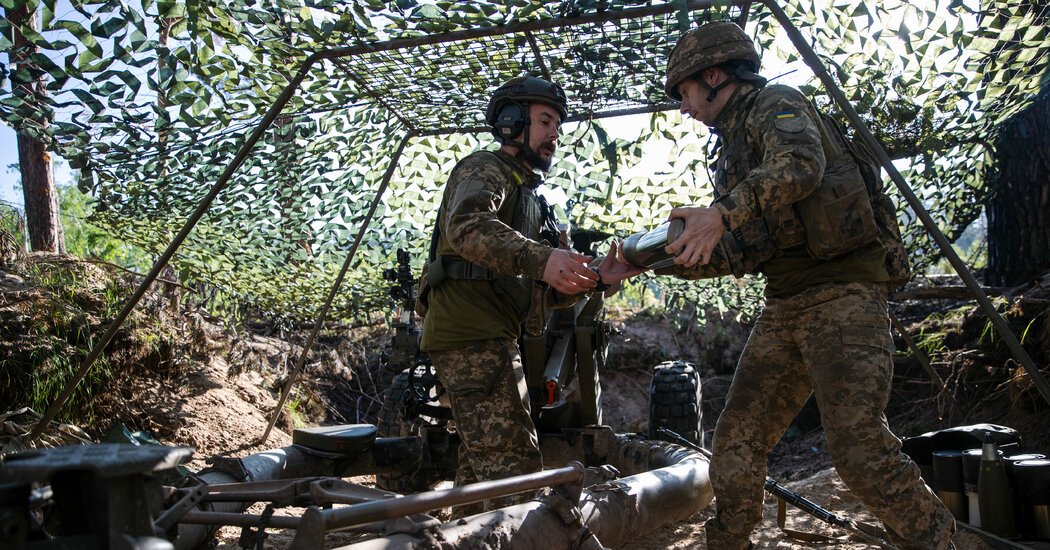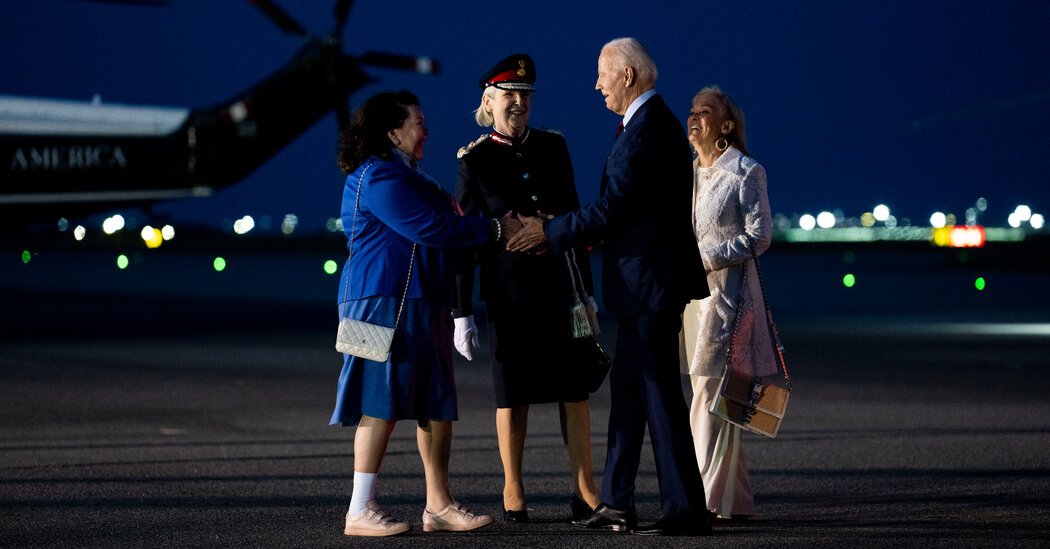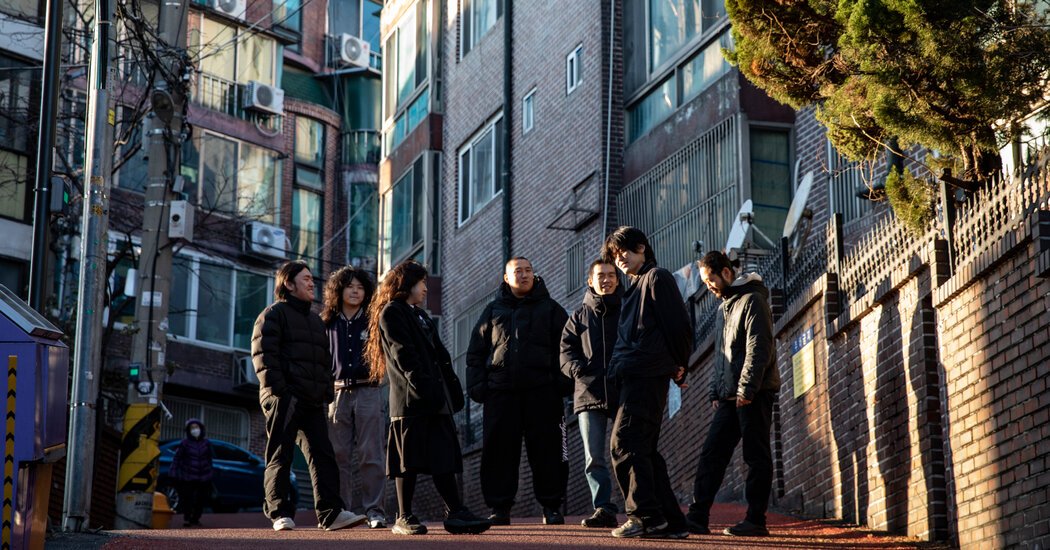ISTANBUL, Turkey — As President Recep Tayyip Erdogan of Turkey approaches the toughest election of his career on Sunday, he has marshaled many of the resources of the state to tilt the playing field to his advantage.
Mr. Erdogan, who has come to increasingly dominate the country over the past two decades, tapped the Treasury for populist spending programs and has raised the minimum wage three times in the last year and a half. His challenger barely appears on the state broadcaster while Mr. Erdogan’s speeches are aired in full. And this weekend’s vote will be overseen by an election board that, during recent votes, has made questionable calls that benefited the president.
And yet, Mr. Erdogan could still lose.
Recent polls show him trailing the main challenger, Kemal Kilicdaroglu, in a tight race that could go to a runoff later this month. But Mr. Erdogan’s grip on the country could also contribute to his undoing, if voters drop him because of his strongman ways and persistently high inflation that has left Turks feeling poorer.
“The elections are not fair, but nonetheless they are free, and that is why there is always the prospect of political change in Turkey,” said Sinan Ulgen, director of the Istanbul-based EDAM research group. “The prospect exists, and is now palpable.”
Mr. Erdogan has eroded democratic institutions, stocking the judiciary with loyalists and limiting free expression. His main challenger, Mr. Kilicdaroglu, has vowed to restore democracy if he wins.
The close race speaks to Turkey’s complicated character. Political scientists say it is neither a full democracy nor a full-blown autocracy, but rather a mix of the two in which the leader has outsized power but where elections can still bring about change.
Turkey has never tipped into full-on autocracy because electoral politics retain a hallowed place in the national identity, one revered by Mr. Erdogan himself. He and his governing Justice and Development Party have regularly trounced their opponents at the ballot box over the years with no indications of foul play, granting Mr. Erdogan a mandate.
Mr. Erdogan dismissed speculation that he would refuse to leave power if he lost, calling a question about the possibility “very ridiculous” during an interview on Friday with Turkish broadcasters. He came to power through democracy, he said, and would respect the process.
“If our nation decides to make such a different decision, we will do exactly what’s required by democracy,” he said.
Turkey’s political ambiguity is also reflected in its global position.
During Mr. Erdogan’s tenure, much of Turkish foreign policy has become personally associated with him as he has proved to be a necessary, but problematic — and at times puzzling — partner of the West. He condemned Russia’s invasion of Ukraine and sent aid to the Ukrainian government while not only refusing to join Western sanctions on Russia, but also expanding trade ties with, and drawing closer to, President Vladimir V. Putin of Russia.
He has sparred with the United States over Syria policy and disparages Washington in his speeches. He heads a NATO member state but has hampered the alliance’s expansion, delaying Finland’s ability to join and still refusing to accept Sweden.
All of that, at times, has left Western leaders wondering whose side he is really on.
A change of leadership in Turkey would resonate around the world, given the country’s unique position as a predominantly Muslim society with a staunchly secular state and a vast network of economic and diplomatic ties spanning Asia, Africa, Europe and the Middle East.
Mr. Kilicdaroglu has promised that if he wins, he will improve relations with the West and make Turkish foreign policy less personal. But what exactly that would look like is hard to predict: He represents a coalition of six political parties with widely divergent ideologies and his record provides few clues. Before entering politics, he was a civil servant who ran Turkey’s social security administration.
After Mr. Erdogan rose to the national stage as prime minister in 2003, he was widely seen as a new model of Islamist democrat, one pro-business and interested in strong ties with the West. During his first decade, Turkey’s economy boomed, lifting millions into the middle class.
But more recently — after facing mass street protests against his governing style, becoming president in 2014 and surviving a failed coup attempt in 2016 — he purged his foes from the state bureaucracy, limited civil liberties and centralized power in his hands.
Mr. Erdogan retains a fervent following, particularly among working class, rural and more religious voters, who love his rhetoric about standing up for Turkey against an array of domestic and foreign enemies. He has pushed back against Turkey’s state secularism, expanding Islamic education and changing regulations to allow women in government jobs to wear head scarves.
The political opposition says that his consolidation of power has gone too far and portrays Sunday’s vote as a make-it-or-break-it moment for Turkish democracy that could inspire other states struggling with aspiring autocrats.
Mr. Erdogan’s advantages are clear, starting with the perks citizens can receive through links to his political party, including state jobs, social support or local services like new roads, analysts said.
The president’s use of power for electoral gain has raised questions about how fair these elections really are.
“It is more like a hybrid regime, where you have multiparty elections but where the opposition does not enjoy the same opportunities as the government to put their ideas and policies through to voters,” said Ersin Kalaycioglu, a professor of political science at Sabanci University in Istanbul.
Mr. Erdogan has extended his sway over the news media. Major news networks are owned by businessmen close to Mr. Erdogan while outlets that criticize his policies are often hounded with fines and lawsuits.
A recent analysis of the state-funded broadcaster TRT found that in April, Mr. Kilicdaroglu received only 32 minutes of airtime. Mr. Erdogan got 32 hours.
“TRT acts like a public relations firm assigned to run the election campaign of the ruling party and its presidential candidate,” Ilhan Tasci, an opposition party member at the state broadcasting regulator, said in a statement when releasing the data.
Overseeing Sunday’s vote is the Supreme Election Council, a panel of judges. For decades, it was widely regarded as independent and trustworthy, but two recent decisions marred its reputation in the eyes of opposition supporters.
In 2017, while the votes were being counted in a referendum on changing Turkey from a parliamentary to a presidential system, the board decided to override the electoral law and include ballots that lacked an official stamp proving their authenticity. The referendum passed by a slim margin, allowing Mr. Erdogan, the president at the time, to greatly expand his powers.
In 2019, after an opposition candidate beat Mr. Erdogan’s candidate in the mayor’s race for Istanbul, Turkey’s largest city, the council voided the results, citing irregularities, and called for a redo. The same opposition candidate won that, too, by an even larger margin.
Those decisions raised questions about the election board’s willingness to rule against Mr. Erdogan’s preferred outcome, said Hasan Sinar, an associate professor of criminal law at Altinbas University in Istanbul.
“On paper, they are neutral,” he said. “But when the government stays in power so long, no one in that position can be neutral anymore.” Any doubt about the electoral board’s neutrality was detrimental to Turkey’s democracy, he added. “This is never supposed to be poisoned by doubt,” he said.
In recent weeks, Mr. Erdogan has used his bully pulpit to bludgeon the opposition, warning that the country would suffer under their leadership and accusing them of conspiring with terrorists. Mr. Erdogan’s interior minister, Suleyman Soylu, who oversees the security forces, has gone further, sowing doubts about the results before the vote even begins.
The election amounted to “a political coup attempt by the West,” Mr. Soylu said last month during a campaign stop. “It is a coup attempt formed by bringing together all of the preparations to purge Turkey.”
A few days later, Mr. Soylu said that Mr. Kilicdaroglu’s party was “always open to cheating.”
Despite the problems, Turks remain hopeful that Sunday’s poll will express the people’s will. This week, after Mr. Soylu requested that the election board share detailed data about polling places and voter registrations so his ministry could set up its own system to tabulate the vote, the election board pushed back, saying that only it was empowered to count votes.
Others noted Mr. Erdogan’s long commitment to electoral politics, hoping that meant he would accept his own loss if it happened.
“Turkey has a long tradition of multiparty democracy and a very strong attachment to the integrity of the vote,” said Mr. Ulgen, the director of EDAM. If a clean vote is held, it would probably be respected, even by Mr. Erdogan, he added.
But trouble could arise if the results are very close, causing the candidates to contest them or question the process.
If the spread is very thin, Mr. Ulgen said, “all options are on the table.”
Gulsin Harman contributed reporting.





